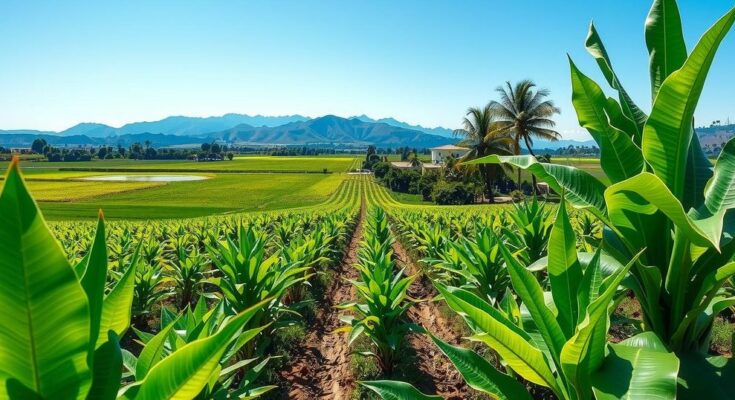Farmers in Madagascar’s vanilla belt confront escalating climate changes, hindering their ability to adapt and farm effectively. Interviews reveal widespread concerns over drying water sources, pest increases, and health issues. Only a small percentage are making changes to their farming practices, with financial limitations being a significant barrier. The study highlights the urgent need for supportive programs to assist farmers in navigating these challenges.
Farmers in Madagascar’s vanilla-producing regions are grappling with significant climate changes that complicate their agricultural practices. Nearly all surveyed farmers have experienced altered temperature and rainfall patterns, which exacerbate their existing difficulty in feeding their families. Despite anticipating deteriorating conditions, only a small fraction are actively adapting their farming methods.
Interviews conducted in 2023 in the villages of Sarahandrano and Mandena revealed that most locals cultivate vanilla beans, along with rice, bananas, and coffee, using basic hand tools. They rely on sources like springs and rivers for irrigation while selling part of their harvests in local markets. However, many residents have reported declining water availability and increased weather extremes that hinder their agricultural effort.
Charles Nunn, a senior co-author of the study, pointed out that roughly 75% of respondents noted their water sources drying up and reduced agricultural labor due to harsh weather conditions. Furthermore, many indicated that the shift in climate has led to increased infestations of pests and a rise in health issues such as malaria and diarrhea.
Despite these alarming trends, only 20% of those surveyed have taken measures to adjust, such as employing fertilizers or modifying planting schedules. Tyler Barrett, leading the research at Duke University, remarked, “That is significantly lower than prior studies of climate adaptation among small-scale farmers in other countries.” The study also found that male farmers and those possessing more assets are more likely to implement changes, indicating financial constraints inhibit adaptive actions for many.
Over 80% of Madagascar’s population lives in poverty, influencing their capacity to adopt new farming practices. Senior co-author Randall Kramer emphasized that many alternative systems incur higher costs in terms of labor and materials. Programs designed to alleviate these financial challenges are lacking, particularly for less affluent farmers.
Suggestions to enhance farming strategies include integrating fruit trees and aquaculture within rice paddies, promoting both food security and environmental benefits such as pest management. Small-scale farmers, already accustomed to unpredictable climate events like cyclones, face compounded risks from worsening conditions.
Farmers in Madagascar are facing increasing challenges due to climate change, significantly impacting their ability to sustain their livelihoods. While some individuals are beginning to adopt alternative practices, a vast majority remain stuck, largely due to financial constraints. Enhancing supportive programs and introducing adaptive agricultural technologies may help alleviate the burden on these vulnerable communities.
Original Source: today.duke.edu




